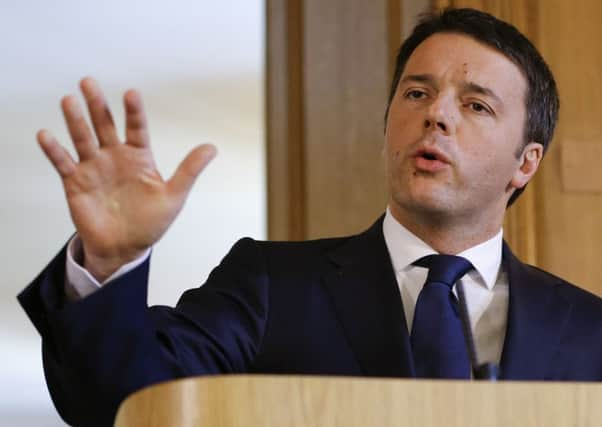Calls for reforms as Italy slides into recession


Figures from statistics agency Istat yesterday showed gross domestic product unexpectedly declined by 0.2 per cent in April-June from the previous three months, putting pressue on the government to complete promised reforms.
Italy’s economy also shrank by 0.1 per cent in January-March, meaning it has returned to recession, defined as two consecutive quarters of contraction.
Advertisement
Hide AdAdvertisement
Hide AdItalian stocks fell after the data and the risk premium between Italy’s ten-year bonds and those of Germany widened.
In an interview before the data release, economy minister Pier Carlo Padoan said that despite growth falling short of forecasts on which 2014 tax and spending plans were based, Italy would not need an emergency budget. He told the Il Sole 24 Ore business newspaper that Italy would report a budget deficit within the European Union’s ceiling of GDP.
He said: “The 3 per cent limit will not be breached in 2014 or in 2015. There will be no need for a supplementary budget.”
The government’s official projections for 2014 see growth of 0.8 per cent and a deficit of 2.6 per cent of GDP, but Mr Padoan and prime minister Matteo Renzi have said conditions have turned out worse than expected.
That has fuelled speculation extra measures may be needed to meet European Union targets. Calmed by the European Central Bank, financial markets have recovered since 2011 when Italy was at the centre of a crisis that threatened the future of the eurozone.
But yesterday’s data highlighted the lack of progress in addressing the problems of a economy that has been almost stagnant for more than a decade.
The Bank of Italy said last month that GDP had contracted by 9 per cent since the global financial crisis began in 2007. Mr Renzi has announced ambitious labour and tax reforms to revive growth and overhauls of the justice system, the bloated public administration and Italy’s government.
Beyond an €80-per-month tax break for low-income workers, he has yet to translate his promises into action.
Advertisement
Hide AdAdvertisement
Hide AdHowever, his energies have been taken up for weeks by a draining parliamentary battle over constitutional reform.
Mr Padoan added: “Italy is struggling to emerge from the crisis because it has built up structural obstacles. There are no shortcuts to get back to growth: we have to remove the obstacles with structural reforms.”